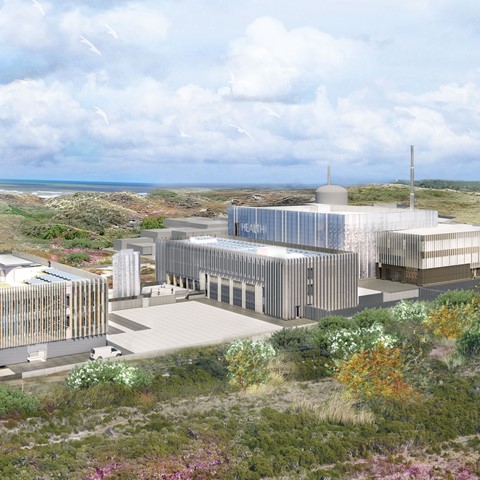Every day 30,000 people are helped with medical isotopes from Petten
PALLAS. Vital
Even though we might not think about it often, there is a good chance that we all know someone who has been treated or examined with radioactive substances at the nuclear department of a hospital. With the realisation of the PALLAS-reactor we provide unique solutions for nuclear medicine and research.

30,000 patients per day
Every day, 30,000 people are helped with medical radioisotopes that are produced in the Dutch town Petten. The Netherlands is a global top producer.
New medical isotopes reactor
PALLAS is the new medical isotopes reactor that will replace the old High Flux Reactor (HFR) in Petten. The arrival of the PALLAS-reactor will enable the Netherlands to continue to help millions of people and even save lives for the next 50 years. PALLAS will start in the future with activities to produce medical isotopes for diagnosis, therapy and (medical) nuclear research.

News
Read more news

Your career at NRG PALLAS
Everyday more than 100 specialists from over 20 countries work on the realization of PALLAS. Curious about your role within this young, dynamic and competent project organization? Discover more below.
Responsibility
NRG PALLAS is committed to implementing the best and most relevant regulations to minimise the environmental impact of its activities throughout its entire life cycle.






